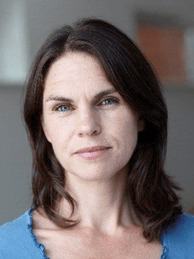‘For all we know, a Caribbean tour to mark the Queen’s jubilee has been on the cards for a while, but the timing of the announcement suggests that, around the table of the Royal Visits Committee, there is more hoped for from this visit than the press release would ever let on. The Palace’s official line is that there is no agenda about retaining any of the ‘realms’, but I’d like to know exactly what was discussed during those meetings, and what went on behind the scenes to make sure that the host countries issued invitations, and came up with acceptable itineraries.’ Alice Hunt
The Queen’s Platinum Jubilee
and the Caribbean
Last month the Palace announced that the Duke and Duchess of Cambridge, will visit three Caribbean countries between 19 and 26 March. William and Kate will visit Belize, Jamaica and the Bahamas as part of a series of royal spring tours to mark the Queen's Platinum Jubilee. They will be followed to the Caribbean by Edward and Sophie, the Earl and Countess of Wessex, who will travel to Antigua and Barbuda, Grenada, St Lucia, and St Vincent and the Grenadines in April. Read more
Opinions
In News
Jamaica’s Long and Winding Road to Becoming a Republic
Routes to Republicanism in the Caribbean
Will and Kate's colonial nostalgia tour is about more than disastrous photo-ops
Royal tour ‘in sharp opposition’ to needs of Caribbean people, says human rights group
The Cambridges’ tour hasn’t quite gone to plan
Prince William says family 'supports' Bahamas decisions about future
I did not ‘snub’ Kate Middleton. But Jamaica needs more than royal regrets over slavery
Belize signals intention to remove Queen as head of state following royal visit
The Crown and the Commonwealth face a perilous future
As a historian of slavery, I know just how much the royal family has to answer for in Jamaica
The Queen’s Platinum Jubilee and the Caribbean
Last month the Palace announced that the Duke and Duchess of Cambridge, will visit three Caribbean countries between 19 and 26 March. William and Kate will visit Belize, Jamaica and the Bahamas as part of a series of royal spring tours to mark the Queen's Platinum Jubilee. They will be followed to the Caribbean by Edward and Sophie, the Earl and Countess of Wessex, who will travel to Antigua and Barbuda, Grenada, St Lucia, and St Vincent and the Grenadines in April. The Duke and Duchess, who will represent the Queen while on tour, said they were ‘so excited’ about their visit and ‘can't wait to meet people’ and ‘celebrate local cultures’. Their itinerary will include visiting historic Mayan sites in Belize, meeting the Defence Force and celebrating the legacy of Bob Marley in Jamaica, and experiencing a junkanoo parade in the Bahamas.
Coming less than 6 months after Barbados became a republic, this tour raises many questions. Should we see this as a charm offensive designed to renew bonds and maintain Crown links with its remaining eight Caribbean realms, or is this the inevitable beginning of a long goodbye to the Caribbean? All eyes will be on Jamaica which has been talking about removing the monarchy for years. Yet, unlike in Barbados, this can only be decided by popular mandate: the Jamaican constitution requires a two-thirds majority in both houses of parliament plus a referendum to become a republic. Republican sentiment has also been expressed or hinted at in the Bahamas and Belize. Clearly, the Palace believes in the value and purpose of a royal tour, however fleeting it is. A tour, after all, guarantees photo opportunities and substantial press coverage. But will William and Kate’s tour do little more than raise questions about the absurdity of a distant head of state? Or uncomfortable questions about reparations? In anticipation of William and Kate’s arrival, Belize’s 7 News asked a number of people if they had even heard of William and Kate. ‘No’, was a common answer. And for someone who did know who ‘the Duke’ was, he questioned the purpose of a visit by descendants of the country’s former ‘colonial master’. And there are more practical questions: how are these countries (the UK included), which are recovering from the pandemic and struggling with the cost of gas, funding such a tour, a trip that involves not only travel and luxury accommodation but also lot of staff and high levels of security? What is it about the travelling show of the British monarchy that has persisted, and that can still be justified? These displays of majesty and devotion go back hundreds of years; Elizabeth I excelled at the royal progress but she bankrupted her hosts along the way. Or do these tours enable the bonds between Crown and people to be reforged, reinvigorated and even reinvented? Can the charisma of William and Kate showcase a new kind of modern royalty with a purpose, but that still needs, as the Queen once said, ‘to be seen to be believed’?


